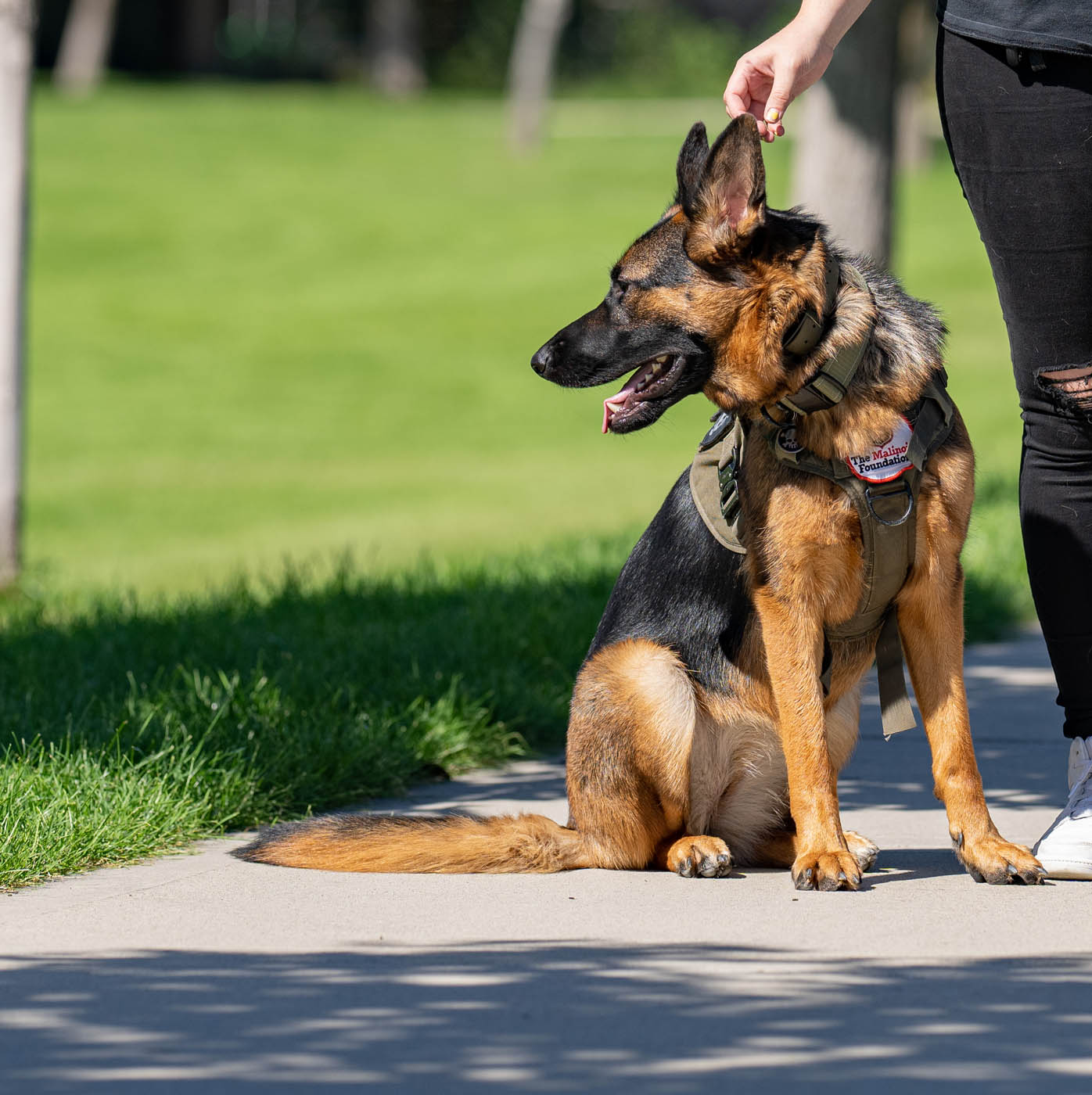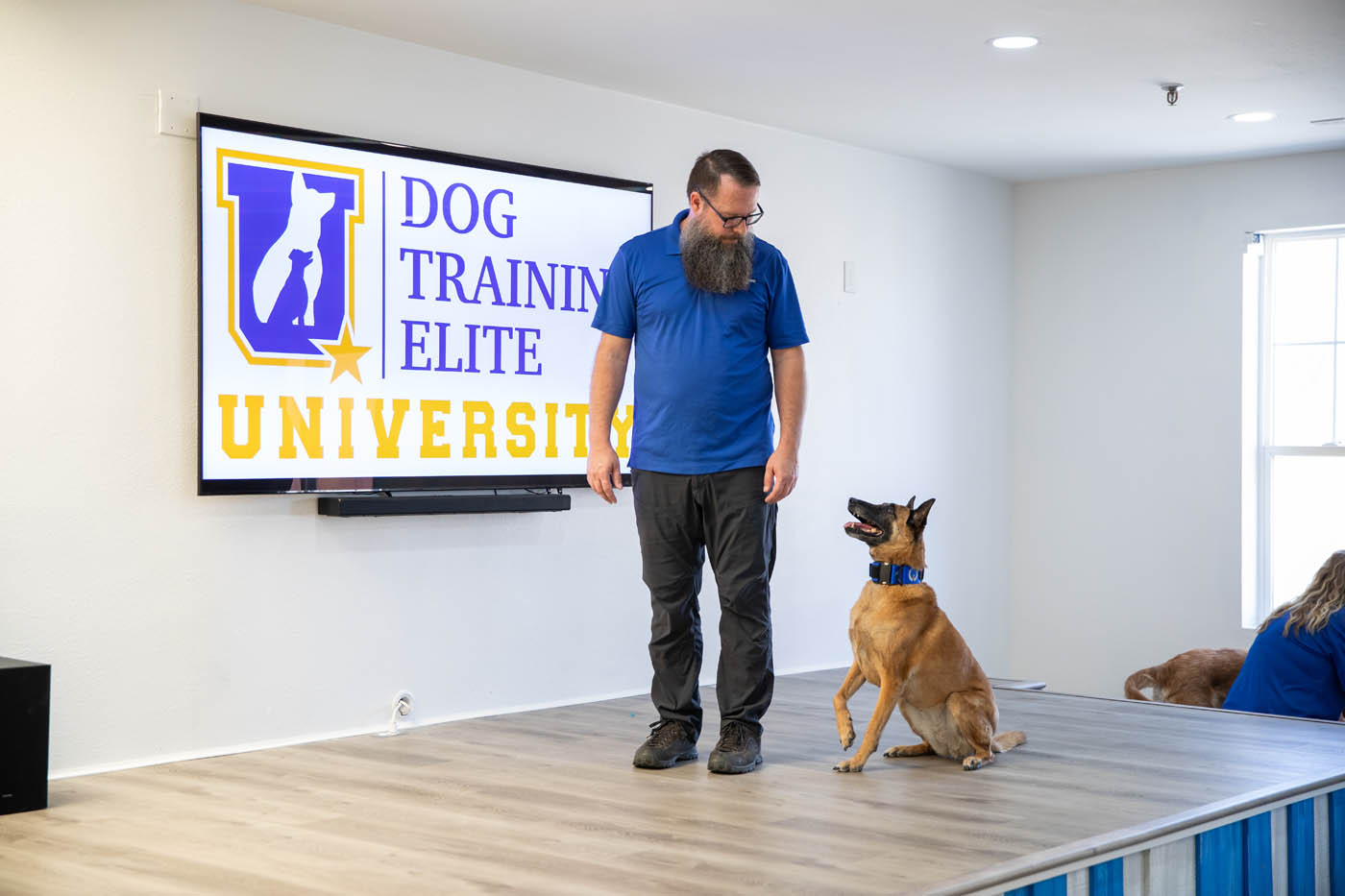The Ultimate Overview to Dog Training Charlotte: Methods for Success
The Ultimate Overview to Dog Training Charlotte: Methods for Success
Blog Article
Unlock Your Canine's Potential: Proven Pet Training Techniques for Success
Efficient pet training is a nuanced procedure that pivots on understanding canine behavior and using medically backed techniques. By incorporating favorable reinforcement, developing clear commands, and focusing on socialization, dog owners can grow an effective connection with their pet dogs.
Understanding Pet Behavior
Comprehending pet dog behavior is vital for effective training and promoting a positive connection between pets and their owners. An extensive grasp of canine body movement, articulations, and social interactions is vital for acknowledging their demands and emotions. Canines connect primarily with non-verbal cues; as an example, a wagging tail may show enjoyment, while pinned ears can signify concern or entry.

Moreover, ecological aspects play a considerable role in shaping a pet dog's behavior. Changes in routine, new environments, or the visibility of strange people can lead to stress and anxiety or anxiousness in dogs. Recognizing these triggers enables proprietors to alleviate adverse responses and create ideal training approaches.
Inevitably, a deep understanding of pet habits lays the foundation for effective training methods, boosting both behavior and the general bond in between the canine and its owner. Dog training. This understanding is essential for fostering a well-adjusted, happy canine companion
Favorable Support Techniques
Efficient training depends heavily on positive reinforcement strategies, which have actually been revealed to generate significant lead to forming preferred behaviors in pets. This technique includes rewarding a dog for exhibiting specific actions, thereby raising the likelihood that these actions will be duplicated. Rewards can take various kinds, consisting of treats, appreciation, playthings, or play, depending upon what inspires the private canine.

It is important to progressively eliminate incentives as the pet discovers the actions, transitioning to intermittent support. This technique keeps the actions over time while avoiding reliance on constant benefits. By concentrating on positive support, fitness instructors can cultivate a trusting relationship with their pet dogs, promoting a participating and healthy and balanced training setting that enhances general obedience and performance.
Developing Consistent Commands
A fundamental aspect of successful pet training is the establishment of constant commands. Consistency in commands is critical for reliable communication between the pet dog and the trainer. When commands are consistent, dogs find out to link specific words with preferred habits, which accelerates the training process and improves understanding.
To develop constant commands, it is vital that all member of the family utilize the very same terminology and gestures. If one person makes use of "sit" while another says "sit down," it can create confusion for the pet. Select clear, distinctive words for commands and make certain every person entailed in the pet dog's training follows these selections.
Reinforce commands with constant method, making sure that the pet obtains ample opportunities to respond appropriately. When a pet successfully follows a command, prompt favorable support needs to comply with.
Last but not least, be person. Developing constant commands takes time and initiative. With devotion and clarity, you will certainly assist your dog establish a strong understanding of assumptions, inevitably resulting in a well-behaved buddy.
Socializing and Direct Exposure
Socializing a pet is crucial for promoting a positive and well-adjusted companion. This process entails revealing dog trainers in my area your dog to a range of environments, individuals, and other animals to establish their social skills and adaptability. Early socialization, ideally between the ages of three to fourteen weeks, is crucial, as it lays the foundation for a dog's future actions.
Throughout socialization, objective to provide favorable experiences in various settings, such as parks, active roads, and homes with various other pets. Present your dog to numerous stimulations, consisting of sounds, views, and scents, ensuring that each experience is satisfying. This exposure assists alleviate fear and stress and anxiety, leading the way for a more durable pet.
Involving in controlled team play sessions with other pets can additionally improve social skills, teaching your pet ideal communications and boundaries. Prioritizing socializing will considerably add to your pet's general joy and habits throughout their life.
Conquering Common Training Difficulties

Pet dogs might have a hard time to focus in strange or hectic setups. Slowly desensitize your dog to distractions by beginning training in a quiet atmosphere and gradually introducing more stimulations as they come to be efficient.
Additionally, behavior concerns like jumping or extreme barking can come to be discouraging. Address these by educating alternate habits, such as resting calmly when greeting guests. Uniformity and persistence are crucial; strengthen preferred habits continually and avoid abuse, which can bring about complication.
Last but not least, identify that navigate to this site each pet is special, and training timelines may vary. Tailor your strategy to your pet's individual needs, and look for expert guidance if needed. With perseverance and the appropriate techniques, getting over these difficulties can lead to a well-trained, satisfied canine buddy.
Conclusion
Finally, unlocking a pet dog's potential requires a thorough technique that includes an understanding of canine behavior, the application of favorable reinforcement methods, and the establishment of constant commands. Early socialization and direct exposure to varied environments better enhance a dog's flexibility and confidence. By resolving usual training difficulties with tailored techniques and perseverance, a unified and cooperative connection in between pet dog and trainer can be promoted, eventually leading to a well-behaved friend qualified of growing in different scenarios.
Effective pet training is a nuanced procedure that hinges on understanding canine actions and utilizing clinically backed methods.Recognizing pet dog behavior is essential for efficient training and promoting a favorable relationship in between dogs and their owners.Reliable training counts heavily on favorable reinforcement techniques, which have actually been revealed to yield significant outcomes in shaping desired actions in dogs. When commands are uniform, pet dogs learn to connect particular words with desired actions, which increases the training procedure and boosts understanding.
In conclusion, unlocking alpha dog training a pet dog's potential demands a thorough strategy that integrates an understanding of canine actions, the application of favorable support techniques, and the establishment of regular commands.
Report this page